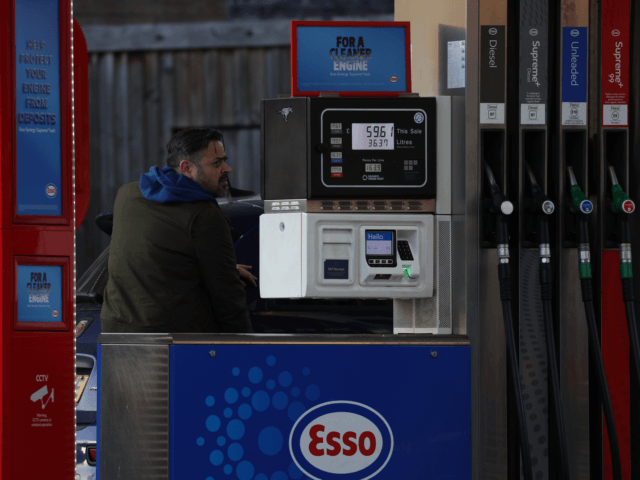Inflation in the United Kingdom has risen to the highest level in 30 years last month, spurred on by the spiralling costs of fuel, which saw the sharpest spike in prices since records began.
According to the Office for National Statistics, inflation rose from 6.2 per cent in February to seven per cent in March, the highest figure since 1992.
The official statistician attributed the latest increase of inflation to the rising cost of fuel, which has been steadily rising since coronavirus lockdown restrictions began to be lifted last summer and further exacerbated by the war in Ukraine.
The average petrol price rose by 12.6p per litre between February and March, the sharpest increase since records began in 1990. For context, the cost of petrol rose by 3.5p during the same time period last year. Diesel prices have also been on the rise, increasing by 18.8p per litre.
It is likely that inflation will only continue to get worse, as the latest figures do not reflect the 54 per cent increase in the energy cap in April by the nation’s energy regulator Ofgem, which has warned of further increases to the cap in the Autumn.
The Office for Budget Responsibility warned last month that when the cap is reviewed in October, inflation could hit a 40-year-high of 8.7 per cent.
The lead economist for the Confederation of British Industry (CBI), Alpesh Paleja told The Times: “The latest rise in inflation will not be the last. We’ll see another jump over April as the rise in Ofgem’s energy price cap comes into effect. Beyond this, volatility in global commodity prices and ongoing supply chain disruption will continue to stoke price pressures.”
While the UK only imports around 6 per cent of its crude oil from Russia, it is still subject to the global fluctuations on prices as a result of Western sanctions and supply disruptions. Many, including economic conservatives such as Reform UK leader Richard Rice have long-warned of the dangers of failing to tap domestic sources of energy such as fracking.
The inflation has expanded throughout the economy on top of the rise of fuel costs, with the price of eating in restaurants or staying in hotels seeing record increases, while the price of clothing and footwear jumped by 9.7 per cent.
The price of cooking oils and fats also increased by 7.2 per cent in March, likely a result of the war in Ukraine, which is a major supplier of items such as sunflower oil.
The chief executive of wholesaler BidFood, Andrew Selley told the BBC: “I’ve been in the business for over 30 years. I’ve never seen a situation where everything seems to be going up [in price],” warning that costs will likely be passed onto consumers.
The rising cost of living expenses comes as inflation has resulted in wages declining in real terms, with take home pay — excluding bonuses — falling by one per cent between December and February.
In response to the troubling economic data, Chancellor Rishi Sunak said: “I know this is a worrying time for many families, which is why we are taking action to ease the burdens by providing support worth around £22bn in this financial year, including for the most vulnerable through our Household Support fund.”
The government has, however, so far refused to make meaningful tax cuts, particularly on energy, despite coming to power on its 2019 election manifesto, which explicitly promised to cut taxes.
Follow Kurt Zindulka on Twitter here @KurtZindulka

COMMENTS
Please let us know if you're having issues with commenting.